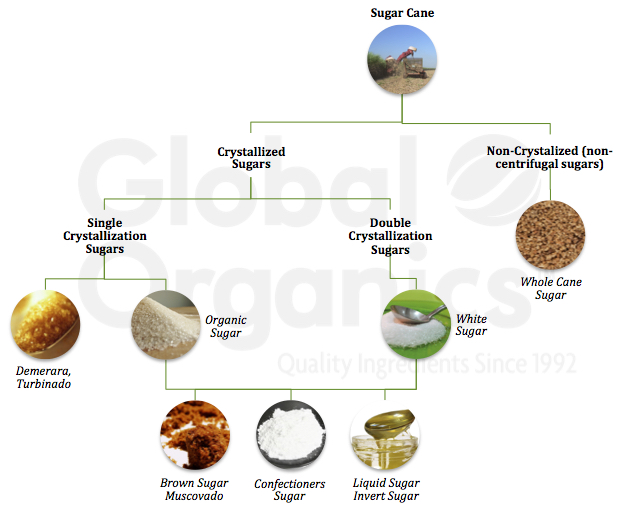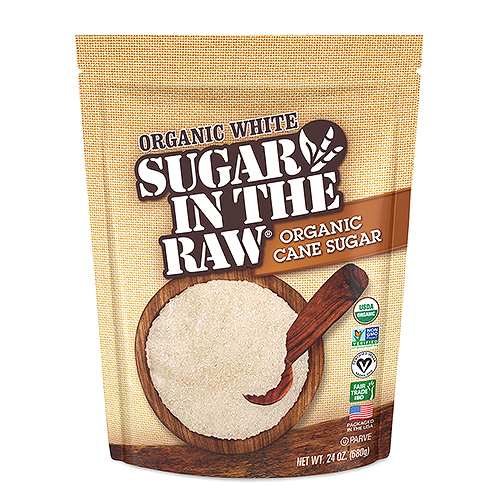Cane Sugar Processing: Cutting-edge Methods for Quality Manufacturing
Cane Sugar Processing: Cutting-edge Methods for Quality Manufacturing
Blog Article
A Comprehensive Introduction of the Health and Economic Effects of Cane Sugar Handling on Regional Areas
Cane sugar handling plays an essential function fit the economic landscape of local communities, using employment possibility and boosting secondary industries. Nonetheless, the health implications associated with high sugar intake can not be overlooked, as they contribute to rising prices of weight problems and diabetic issues. This nuanced vibrant invites an important exam of just how neighborhoods can enhance economic gains while attending to journalism wellness challenges they face. The exploration of sustainable techniques and educational initiatives might simply hold the trick to reconciling these conflicting passions. What methods might neighborhoods implement to achieve this balance?
Economic Benefits of Cane Sugar Handling
Cane sugar handling supplies considerable economic advantages that prolong past the instant agricultural sector. The farming and processing of sugarcane produce countless job chances, from farming to production and circulation. This work generation not just sustains neighborhood economic climates yet additionally promotes community development by giving stable income resources for households.
Additionally, the sugar sector stimulates supplementary companies, consisting of transport, tools supply, and packaging services (Cane Sugar Processing). As these sectors expand, they contribute to an extra robust economic structure, boosting overall neighborhood resilience. The export capacity of refined walking cane sugar additionally magnifies economic benefits, placing areas as competitive gamers in international markets
Financial investment in modern handling facilities can bring about raised productivity and efficiency, thereby lowering waste and optimizing resource usage. This change not just benefits the neighborhood economic situation however likewise sustains sustainability initiatives by lessening ecological influences.
Furthermore, the profits generated from walking stick sugar handling can be reinvested in neighborhood infrastructure, education and learning, and healthcare, advertising alternative neighborhood development. On the whole, the financial benefits of walking stick sugar processing are diverse, giving a foundation for enduring success in farming areas.
Wellness Risks Linked With Sugar Usage
Excessive sugar usage poses significant wellness risks that warrant severe attention. High consumption of sugarcoated, especially from refined beverages and foods, has been linked to numerous health and wellness issues. One of the most pressing issues is excessive weight, as sugary diet plans add to an enhanced caloric intake without giving vital nutrients. This unwanted can bring about metabolic conditions, including kind 2 diabetes mellitus, which has actually come to be significantly common in both grownups and children - Cane Sugar Processing.
Moreover, high sugar intake is related to cardio disease. Elevated blood glucose degrees can cause insulin resistance, a precursor to different heart-related concerns. In addition, sugar can have damaging effects on dental health and wellness, leading to cavities and gum condition, as bacteria in the mouth prosper on sugar, generating acids that deteriorate tooth enamel.
Moreover, emerging research suggests a possible link between high sugar intake and psychological health and wellness conditions, such as depression and anxiousness. As neighborhoods grapple with these health and wellness threats, it ends up being essential to promote awareness and encourage much healthier dietary choices. Resolving sugar consumption is crucial not just for private health yet likewise for the overall well-being of regional areas, highlighting the demand for detailed public health and wellness approaches.
Environmental Influences of Sugar Manufacturing
Frequently overlooked in conversations regarding sugar's effects is the substantial environmental impact of sugar production. The cultivation of sugarcane frequently demands considerable land usage, bring about deforestation, loss of biodiversity, and disruption of regional ecosystems. The conversion of woodlands and marshes into sugar haciendas can lead to environment damage, harmful many species and modifying eco-friendly equilibrium.
Moreover, sugar manufacturing is resource-intensive, consuming considerable amounts of water for irrigation. This can cause deficiency of local water sources, negatively influencing both agricultural practices and area access to tidy water. Additionally, using chemical fertilizers and pesticides in sugarcane farming can add to dirt destruction and water air pollution, as drainage from these chemicals gets in nearby rivers and lakes, affecting water life and human wellness.
The environmental impact reaches the processing phase, where power intake and waste generation more worsen ecological problems. Air contamination from shedding sugarcane areas, together with greenhouse gas discharges, add to climate change. Thus, the environmental effects of sugar manufacturing warrant severe factor to consider, prompting stakeholders to take on more sustainable practices to minimize these negative impacts on regional communities and communities.
Work Development and Neighborhood Growth
The ecological obstacles presented by sugar manufacturing are typically counterbalanced by its possibility for economic benefits, especially in task development and neighborhood advancement. The walking cane visit their website sugar market works as a substantial source of employment in lots of rural areas, offering tasks throughout numerous ability levels, from farming labor to handling and circulation functions. This employment not only sustains individual households but also adds to the total financial site here vitality of regional areas.
Additionally, the establishment of sugar processing facilities boosts secondary companies, such as transport services, tools supply, and upkeep suppliers. As these organizations prosper, they create extra work and strengthen regional economic climates. The revenue generated from the sugar sector additionally causes boosted tax incomes, which can be reinvested into social work such as healthcare, education and learning, and facilities advancement.
Additionally, the sugar industry commonly involves in community development initiatives, such as supporting local institutions and health and wellness programs, therefore enhancing the top quality of life for citizens. By fostering strong neighborhood connections and advertising financial development, the walking stick sugar handling market plays an essential function in uplifting regional populaces, making it a necessary part of lasting growth approaches in sugar-producing areas.
Balancing Wellness and Economic Development
In browsing the intricacies of cane sugar processing, an important difficulty exists in stabilizing wellness considerations with financial development. The sugar industry significantly adds to neighborhood economic situations by generating jobs, promoting associated markets, and enhancing tax incomes. Nonetheless, the wellness ramifications related to extreme sugar usage can result in persistent illness such as excessive weight, diabetes, and cardio concerns, which can problem public health systems and lessen labor force performance.

Furthermore, regulative structures can play a critical duty in guiding sector methods towards even more health-conscious and lasting techniques. By promoting cooperation between government bodies, health companies, and the sugar sector, neighborhoods can browse the dichotomy of health and wellness and financial growth, ensuring that the benefits of walking stick sugar handling are equitably shared while prioritizing public health.
Conclusion
To conclude, the handling of walking cane sugar presents both substantial financial benefits and notable health risks for neighborhood communities. While it fosters task production and boosts regional growth, the connected health and wellness worries, especially pertaining to excessive weight and diabetes, require a careful harmonizing act. By advertising liable consumption and investing in neighborhood education and sustainable practices, it is feasible to make best use of economic benefits while minimizing unfavorable health effects, therefore ensuring a healthier future for local populaces.
In addition, sugar can have detrimental impacts on oral wellness, resulting in dental caries and gum illness, as microorganisms in the mouth prosper on sugar, producing acids that wear down tooth enamel.
Dealing with sugar usage is critical not only for private health and wellness but additionally for the total well-being of local communities, emphasizing the demand for thorough public health methods.
Regularly overlooked in conversations concerning sugar's ramifications is the substantial ecological influence of sugar manufacturing. The health effects linked with extreme sugar usage can lead to persistent conditions such as weight problems, diabetic issues, and cardio concerns, which can burden public wellness systems and decrease labor force performance.

Report this page